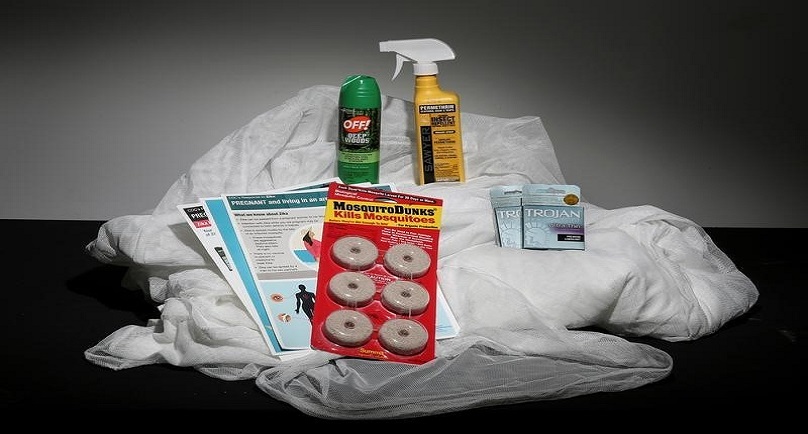Image:An anti Zika virus kit, including a bug net, mosquito repellent, condoms, literature and anti mosquito dunks, is pictured in this April 29, 2016 photo illustration. REUTERS/Carlo Allegri
![]()
(Reuters) – The U.S. Centers for Disease Control and Prevention updated its diagnostic testing guidelines for the Zika virus on Tuesday, based on early data showing that it can be found at higher levels or last longer in urine than in blood.
The agency now recommends that its preferred diagnostic test, called Zika virus RT-PCR, be conducted on urine collected less than 14 days after the individual suspected of having the disease starts experiencing symptoms.
The test should be performed in conjunction with blood testing if the specimens are collected less than seven days after the onset of symptoms, the CDC said.
A positive result in either case provides adequate evidence of infection, the agency said.
The CDC recommendations for Zika testing though blood and other procedures remain unchanged.
The International Organization (WHO) declared the Zika outbreak an international health emergency on Feb. 1.
The outbreak is affecting large parts of Latin America and the Caribbean, with Brazil the hardest hit so far.
U.S. health officials have concluded that Zika infections in pregnant women can cause microcephaly, a birth defect that can lead to severe developmental problems in babies. The virus is also linked to a host of other debilitating disorders.
(Reporting by Natalie Grover in Bengaluru; Editing by Ted Kerr)
Copyright 2016 Thomson Reuters. Click for Restrictions.


